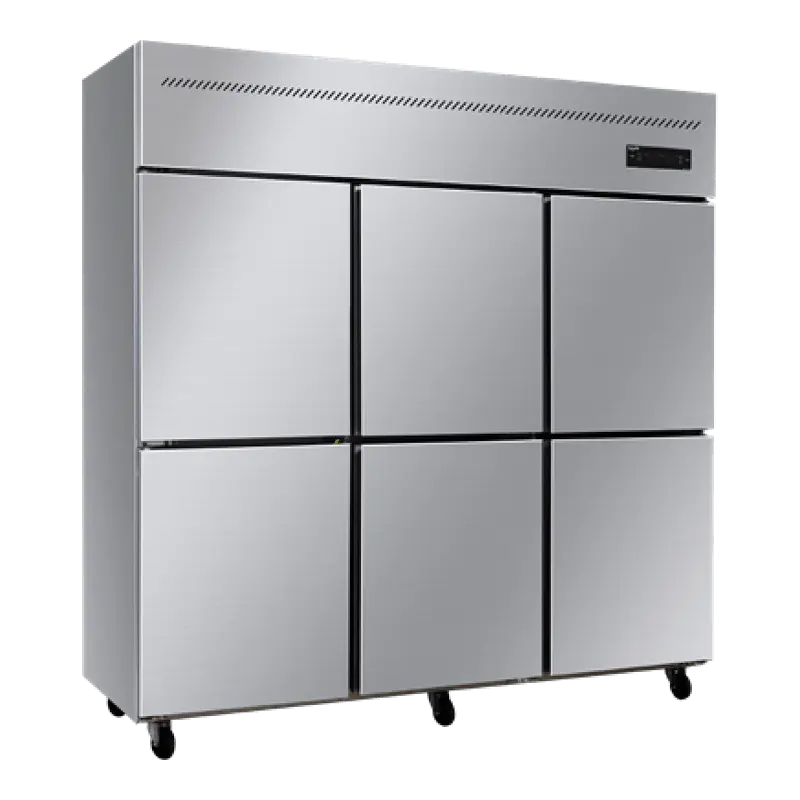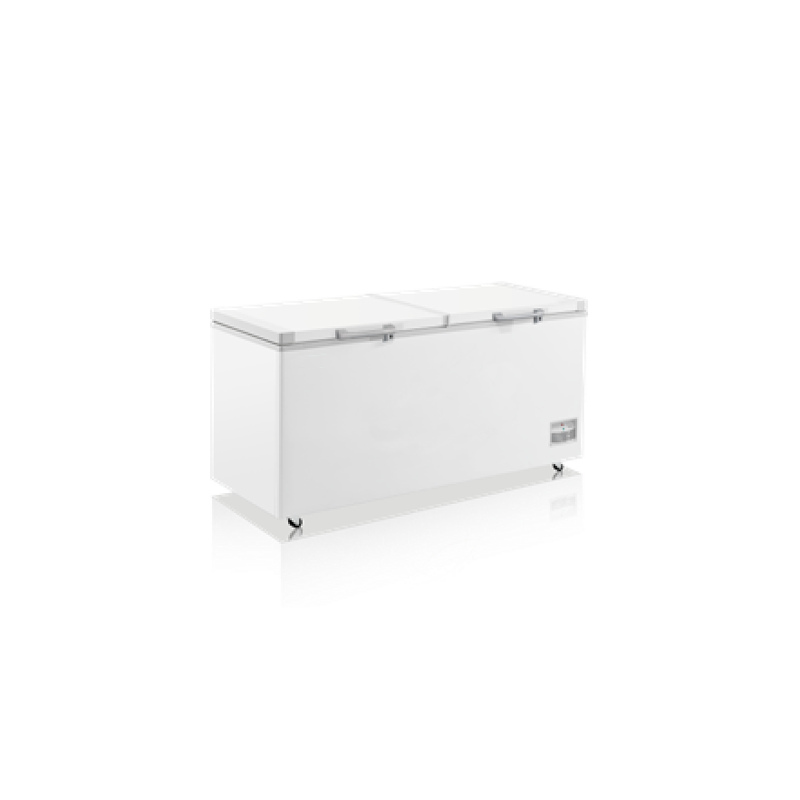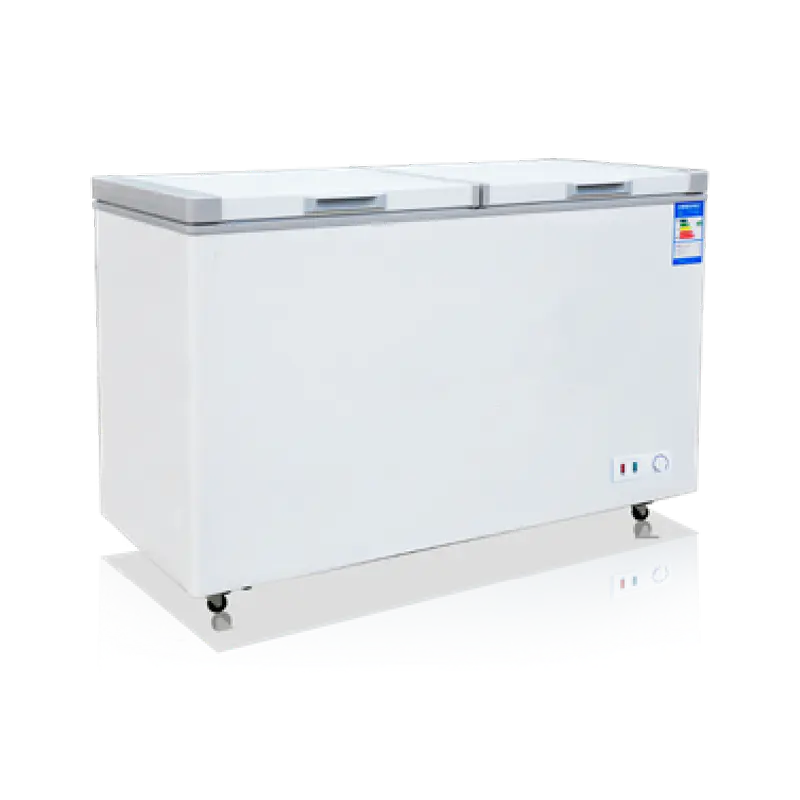Key Differences Between Commercial and Residential Refrigerators
What “Commercial” vs “Residential” Really Means
The key differences between commercial and residential refrigerators come down to design intent: commercial units are engineered for frequent door openings, high ambient heat, and foodservice compliance, while residential units are optimized for quiet operation, lower duty cycles, and kitchen ergonomics.
If you store high-turnover inventory (prep ingredients, beverages, bulk proteins) and need predictable temperature recovery during rush periods, commercial matters. If your priority is low noise, built-in aesthetics, and lower annual electricity use, residential is usually the better fit.
Temperature Stability and Recovery After Door Openings
Commercial refrigeration is built around fast recovery. In a kitchen, doors may open dozens (or hundreds) of times per day; the system is designed to pull the cabinet back into the safe zone quickly even when warm air repeatedly enters.
Practical differences you can feel day-to-day
- Commercial units typically use stronger compressors and airflow management to reduce warm spots—especially near the door and top shelves.
- Residential units often prioritize humidity control, quiet fans, and energy savings over rapid pull-down after repeated openings.
- For foodservice, the operational goal is keeping products consistently in a food-safe range; for home use, the goal is stable storage with minimal noise and energy.
Example setpoints: many reach-in commercial refrigerators advertise a cabinet range around 33°F–41°F, reflecting common foodservice targets and control strategies.
Capacity, Layout, and Usable Storage
Capacity is not only “how many cubic feet,” but also how usable that space is for your workflow. Commercial interiors are optimized for pans, trays, and rapid stocking; residential interiors are optimized for mixed household items and accessibility.
Real-world examples of size differences
A typical residential top-freezer can be around 18 cu. ft., while commercial reach-ins commonly range far higher (for example, units marketed around 49 cu. ft.)—a difference that changes how you plan inventory, restocking, and overflow storage.
| Dimension | Commercial Refrigerators | Residential Refrigerators |
|---|---|---|
| Shelf geometry | Pan/tray-friendly, quick reconfiguration | Mixed-item storage (bins, drawers, door shelves) |
| Loading pattern | High-frequency stocking, high turnover | Lower frequency, varied item shapes |
| Interior durability | Built for repeated impacts and heavy loads | Built for lighter household usage |
| Door design | Often self-closing; gasket serviceability prioritized | Ergonomics, storage bins, aesthetics |
Energy Use and Operating Cost Tradeoffs
Commercial refrigerators can consume substantially more electricity because they run harder, recover faster, and operate in harsher environments (hot kitchens, constant openings). Residential models are generally designed for efficiency at lower duty cycles.
How to estimate cost in a way that actually helps you decide
- Find the unit’s published energy use (kWh/year) or daily energy metric and convert it to annual kWh if needed.
- Multiply annual kWh by your electricity rate to estimate annual operating cost.
- Adjust upward if the unit will live in a hot space, get heavy openings, or be placed with poor airflow clearance.
As a reference point, ENERGY STAR materials highlight a certified top-freezer residential refrigerator around 360 kWh/year in typical messaging. In contrast, commercial refrigeration guidance commonly notes that some commercial refrigerators can reach very high annual usage depending on size and application—making specification and placement (ventilation, maintenance, door discipline) critical to cost control.
Compliance, Materials, and Cleanability
Commercial units are often selected not just for performance, but for inspectability and sanitation. Design details—corners, shelf supports, gasket access, and interior materials—can affect how quickly staff can clean and how well the unit holds up to chemical exposure.
What to look for if the unit supports a regulated operation
- Smooth, wipeable interiors and serviceable gaskets you can replace without replacing the whole door.
- Hardware that tolerates degreasers and frequent sanitation routines (handles, hinges, shelf clips).
- A documentation trail (manuals, spec sheets) that supports audits and maintenance logs.
Residential refrigerators can be perfectly safe for household use, but they are generally not built with the same cleaning cadence, chemical exposure, and inspection expectations as a back-of-house unit.
Installation: Power, Ventilation, Noise, and Heat Rejection
Where the refrigerator lives matters as much as the model itself. Commercial units often reject more heat into the space and may require clearer airflow paths to prevent short cycling and premature compressor wear. Residential units are typically engineered for quieter kitchen environments and standard home electrical assumptions.
Common deployment pitfalls (and how to avoid them)
- Airflow clearance: blocking condenser airflow is a frequent cause of high energy bills and warm cabinets.
- Heat sources: placing a unit next to ovens, fryers, or direct sun increases run time and temperature swings.
- Noise expectations: commercial compressors and fans are often louder; plan location accordingly (especially for open kitchens or adjacent offices).
Maintenance and Lifecycle Cost: What You’ll Actually Do Over Time
Commercial refrigeration assumes a maintenance routine: condenser cleaning, gasket inspection, hinge/door alignment, and temperature logging. Residential units typically require less frequent intervention, but may be less tolerant of neglect in harsh environments like garages, hot pantries, or dusty storage rooms.
A simple maintenance cadence you can operationalize
- Weekly: check for unusual frost patterns, listen for fan noise changes, confirm doors seal fully.
- Monthly: clean accessible intake screens/filters (if present) and wipe gaskets.
- Quarterly: deep-clean condenser area and verify cabinet temperatures with a calibrated thermometer.
- Annually: review energy use and service history; replace worn gaskets to prevent temperature drift.
A good rule: if downtime is expensive (lost product, missed service, compliance risk), prioritize serviceability and parts availability over cosmetics and “nice-to-have” features.
Decision Checklist: Choose the Right Type in 60 Seconds
Use this checklist to align the refrigerator type with your operational reality. The correct choice is the one that reduces risk and friction for your use case—not the one with the most features.
- Choose commercial if you need fast recovery, high throughput, heavier shelving loads, and a unit designed for frequent cleaning.
- Choose residential if the unit sits in a kitchen/quiet space, openings are moderate, and energy efficiency plus features (ice/water, drawers, smart functions) matter most.
- Hybrid situations: home businesses, catering, and garage setups often benefit from commercial durability, but confirm power, noise tolerance, and ventilation before committing.
Bottom line: the key differences between commercial and residential refrigerators are performance under stress, sanitation/service design, and operating cost behavior—match those to your environment and opening frequency to avoid costly regret.


 English
English русский
русский Español
Español عربى
عربى













